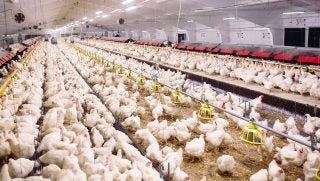AGDAILY and its parent company were paid a fee to publish this article unedited. The views or opinions expressed here are those of the author and may not reflect those of AGDAILY or any of its affiliates.
Blockchain technology is an essential innovation with myriads of benefits and real-world applications. The decentralized nature of blockchain technology is the selling point for multiple companies and startups to integrate this innovative solution into their business operation.
Decentralization keeps blockchain-based applications free from the intervention of third parties or intermediaries. Thus, financial transactions become effortless, and cross-border payments take less time and become cost-effective for businesses and individuals.
Blockchain technology has multiple applications that cover every industry. From cryptocurrency to gaming, healthcare, and agriculture, blockchain adds to the functionality and convenience of business operations. This article will guide you in understanding the role of blockchain technology in transforming agriculture.
Blockchain in Agriculture
The rising demand for transparency and traceability in agricultural matters has paved the way for incorporating blockchain technology in agriculture. Blockchain can manage and supervise agricultural supply chains for enhanced food safety, environmental sustainability, and other perks.
According to InsightAce Analytics, the blockchain-based agriculture and food supply chain market size is growing at 44.11% CAGR with an expectation to get a value of 7,419.9 million USD by 2031.
This exceptional figure reveals an unprecedented inclination towards the use of blockchain technology in agricultural activities. With versatile benefits, blockchain ensures the safety of crops, instant financial transactions, and automated farmers’ payments. Here are some of the top benefits of blockchain in agriculture and the food supply chain.
1. Convenient and Safe Transactions
Blockchain uses a distributed ledger that requires the free consent of every member of the blockchain network to allow the change to the block. This safety protocol ensures convenient and secure transactions.
Cryptocurrency is the instrument for making transactions in the blockchain ecosystem. You must own some crypto assets to proceed with blockchain in the agriculture and food supply chain, making CoinGate one of the best crypto payment checkouts or gateways for businesses and firms.
These features bring convenience and comfort while making transactions. From invoice creation to the latest conversion rates and payment settlements, blockchain in agriculture is a game-changer for farmers.
2. Enhanced Traceability and Transparency
One of the best features of blockchain technology is the version control system. This feature keeps track of the record of each change and modification made to a block on the network. This way, traceability is ultimate for agricultural firms.
Moreover, the public ledger of blockchain promotes transparency and open-source operation. With every agricultural event present on the record and accessible for anyone, fraud, and scams have become a distant concept in agriculture due to blockchain technology.
Farmers store the journey of crops and food from the farms to the market. With every step stored on the blockchain’s public ledger, agricultural businesses enjoy improved traceability and transparency.
3. Sustainable Innovation for Agriculture
Blockchain is one of the sustainable and eco-friendly technologies. However, some consensus mechanisms may be hazardous to the environment, such as proof-of-work (PoW). However, the latest blockchain technologies function on more reliable and green solutions, such as proof-of-stake consensus.
Moreover, farming and agricultural practices use green measures to protect the environment during farming. The use of blockchain technology can ease the execution of eco-friendly farming practices via smart contracts. Smart contracts are a well-programmed document with self-executing features in certain conditions.
Blockchain can help agricultural procedures with reduced waste, optimized resource allocation, responsible agricultural practices, fewer carbon footprints, and improved biodiversity.
4. Smart Contract for Financial Automation
Farmers often go through unnecessary financial hassles due to the stringent regulatory approaches in the agricultural landscape. Blockchain technology has the potential to revolutionize payment efficiency and automation.
With smart contracts in place, farmers can benefit from blockchain technology to automate their financial affairs. While developing the smart contract, farmers can create a self-executing contract when the delivery is made and specific conditions are met.
However, working with smart contracts and blockchain requires relevant knowledge and understanding of this advanced technology. Thus, governments and regulatory authorities must educate farmers and agricultural individuals regarding blockchain for robust growth in the agricultural sector of the economy.
5. Food Safety and Quality Control
Various innovations have transformed agriculture and farming. The use of sensors and technological tools has eased the assessment of crop growth and agricultural factors like temperature, humidity, etc. A controlled observation of these elements helps in food safety and quality control.
Blockchain technology has the potential to store agricultural data on the go. This way, farmers get the comfort of managing and observing these elements, helping them get the harvest at the right time.
These features of blockchain technology ensure the safety of the crops. The harvest offers the best quality, which translates to a high revenue for farmers. Moreover, high-quality harvests create an elevated reputation for agricultural firms.
Final Verdict
Agriculture is the brick-and-mortar of the global economy. Sustainable and reliable farming practices are required for human survival. The use of blockchain technology paves the way for modern and efficient farming practices. With various benefits, such as food safety, transparency, and automated payment for farmers, blockchain technology is essential for agriculture.


